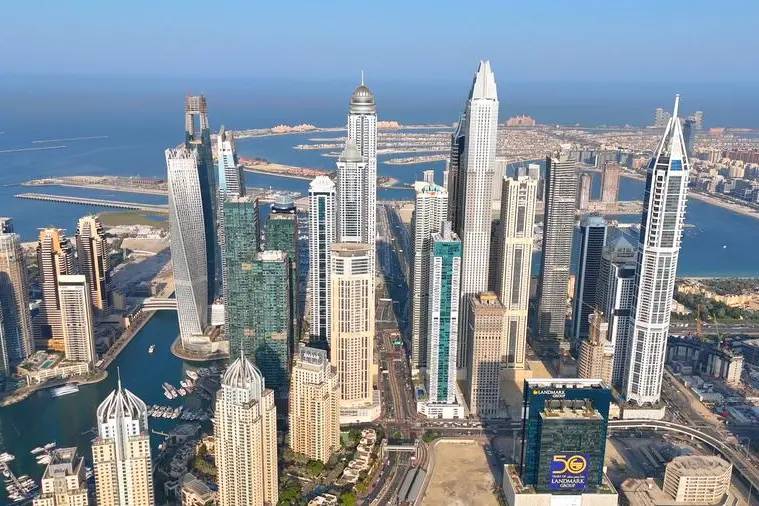INTERVIEW: Dubai’s short-term rental market booms amid strong investor interest
ROI for holiday homes in Dubai is among the highest in the world, according to Anna Skigin, CEO of property management firm Frank Porter.
Staff Writer, Zawya Projects
Dubai’s short-term rental/ holiday home market is thriving with its robust returns drawing significant interest from investors, according to the CEO of Frank Porter, a property management company.
Anna Skigin told Zawya Projects that the rise in holiday home investments is closely linked to the ongoing expansion of Dubai’s real estate market.
“The more options an investor has of what to do with their investment, the more likely he/she will take that next step and buy,” she explained. “Holiday homes allow investors to short-let their unit with full flexibility meaning if the market moves they can quickly sell their unit – something they cannot do with a long-term let. This means more people are buying.”
The strong market performance is supported by data. AirDNA reports roughly 20,000 short-term rentals in Dubai, a number that has tripled in the past six years. This sector sits alongside a sizable hotel market with approximately 145,000 rooms and serviced apartments in Dubai alone.
The Return on Investment (ROI) for holiday homes in Dubai is among the highest in the world, according to Skigin.
“Investors can expect ROI between 3-10 percent depending on the area and property,” she said.
While both Short-Term Rentals and Traditional Rentals offer income, short-term rentals appear to be more lucrative over a medium-term horizon.
“They [short-term yields] tend to be higher over a period of 3-5 years,” said Skigin.
She acknowledged that management costs impact returns for short-term rentals. Typical start-up costs include interior design/furnishing of the unit to ensure it is equipped for guests, government costs like the DET yearly permit costs and tourism taxes, utility, internet costs as well as occasional maintenance costs.
“These costs impact the net returns, however, at Frank Porter, we factor these when making projections, setting prices and comparing returns,” she said.
For investors looking to invest in Dubai’s short-term rental market, Skigin recommended Dubai Marina, JBR, Downtown, JLT, Business Bay, and JVC.
“These are all areas we see high occupancies in due to higher tourism/demand. Newer areas include Meydan,” she said.
The Frank Porter CEO expressed a positive outlook for Dubai’s short-term rental market with more and more people discovering Dubai as a tourist destination.
“We anticipate continued growth, with stricter regulations ensuring a positive guest experience,” she said. “Technology will play a bigger role in guest management, and unique accommodations will be in high demand, further propelling the market forward.”
She said the firm is looking to expand within the UAE.
“Frank Porter is already in Abu Dhabi and we are growing quickly there – the demand is very high. We also have plans to open in other emirates within the year,” she said.
Asked to comment on the future prospects for the Dubai real estate market, Skigin noted that the rate of increase in property prices may be slowing down.
“We anticipate some corrections by the end of the year / beginning of next year as more projects come to fruition. However, with the current economic outlook in the rest of the world, and the massive opportunities in Dubai – I don’t see property prices coming down for a while. Some buyers have cooled off while others started buying more,” she concluded.
(Writing by Anoop Menon; Editing by Bhaskar Raj)
Subscribe to our Projects’ PULSE newsletter that brings you trustworthy news, updates and insights on project activities, developments, and partnerships across sectors in the Middle East and Africa.

